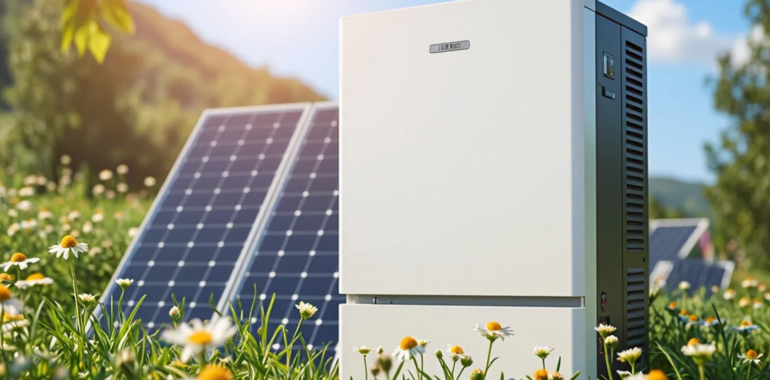
Are Solar Inverters Worth the Investment? Understanding Their Role in Solar Power
What Is a Solar Inverter and Why Is It Important?
A solar inverter is a crucial component of any solar energy system. It converts the direct current (DC) electricity produced by solar panels into alternating current (AC), which is used to power homes and businesses. Without an efficient inverter, solar panels cannot supply usable electricity.
Beyond basic power conversion, solar inverters play an essential role in monitoring system performance, optimizing energy production, and ensuring safety by detecting electrical faults. Choosing the right solar inverter can significantly impact the efficiency and reliability of your solar energy system.
Types of Solar Inverters
Choosing the right solar inverter depends on your energy needs and system type. Here are the main types:
1. String Inverters
- Most common for residential and commercial setups
- Connects multiple solar panels in series
- Cost-effective and easy to install
- Best for roofs with minimal shading
- Can suffer efficiency losses if one panel underperforms
2. Microinverters
- Installed on each individual solar panel
- Improves efficiency in shaded areas
- Allows for panel-level monitoring
- More expensive but enhances performance
- Provides better reliability and system flexibility
3. Hybrid Inverters
- Supports battery storage for energy backup
- Ideal for grid-tied systems with battery integration
- Optimizes self-consumption and energy independence
- Offers seamless switching between solar, grid, and battery power
4. Off-Grid Inverters
- Designed for standalone solar systems
- Works without a utility grid connection
- Best for remote locations and off-grid living
- Requires battery storage for continuous power supply
How Solar Inverters Improve Energy Efficiency
Solar inverters play a critical role in optimizing power output. Here’s how they enhance efficiency:
- Maximum Power Point Tracking (MPPT): Ensures panels operate at their peak efficiency by continuously adjusting voltage and current.
- Smart Inverter Technology: Adjusts power conversion based on sunlight conditions to maximize energy yield.
- Reduces Energy Waste: Converts DC electricity with minimal loss, increasing overall system performance and lowering electricity bills.
- Enables Net Metering: Sends excess energy back to the grid for potential credits, improving financial savings for solar users.
- Advanced Cooling Systems: Prevent overheating, maintaining efficiency even in high-temperature conditions.
Factors to Consider When Choosing a Solar Inverter
Before buying a solar inverter, consider these key factors:
- System Size: Ensure the inverter matches your solar panel output to avoid underperformance.
- Efficiency Rating: Higher efficiency means better performance and energy savings over time.
- Durability: Look for weather-resistant and long-lasting models suitable for different climates.
- Monitoring Capabilities: Smart inverters allow real-time energy tracking and performance insights.
- Warranty and Support: Opt for inverters with long warranties (10+ years) and strong customer support to protect your investment.
- Battery Compatibility: If you plan to add solar battery storage in the future, ensure your inverter supports it.
- Grid Compatibility: Choose between grid-tied, hybrid, or off-grid inverters based on your power setup.
Common Issues and Maintenance Tips for Solar Inverters
Even the best inverters require maintenance. Here’s how to keep yours running smoothly:
- Check for Error Messages: Many inverters display error codes if issues arise; refer to the user manual for troubleshooting.
- Keep It Cool: Ensure proper ventilation and avoid placing it in direct sunlight to prevent overheating.
- Monitor Performance: Use solar monitoring apps for real-time tracking of energy production and efficiency.
- Regular Inspections: Schedule annual maintenance with a solar technician to detect and resolve issues early.
- Firmware Updates: Keep the inverter’s software updated to benefit from the latest efficiency and safety improvements.
- Surge Protection: Install surge protectors to safeguard the inverter from electrical spikes caused by lightning or power grid fluctuations.
Final Thoughts: Are Solar Inverters Worth It?
Absolutely! A solar inverter is essential for converting solar energy into usable electricity. Whether you choose a string inverter, microinverter, or hybrid model, selecting the right one enhances your system’s efficiency and reliability. Investing in a high-quality inverter ensures you get the most out of your solar power setup.
A reliable inverter not only optimizes energy conversion but also contributes to long-term savings by improving overall system performance. If you’re considering a solar power system, choosing the right inverter is just as important as selecting the right solar panels.
